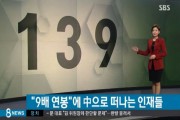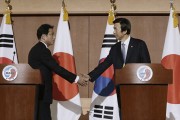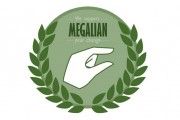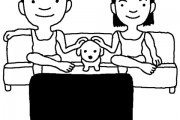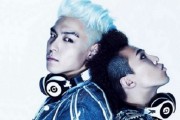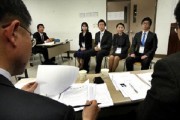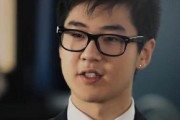 Earlier this year, koreaBANG helped VICE magazine film Seoul Fashion Week as part of their ongoing hit series Fashion Week Internationale, hosted by the wonderful Charlet Duboc.
Earlier this year, koreaBANG helped VICE magazine film Seoul Fashion Week as part of their ongoing hit series Fashion Week Internationale, hosted by the wonderful Charlet Duboc.
Fashion Week Internationale is an online documentary series that spends its time following the ‘other’ fashion weeks, i.e. NOT London, Paris, New York or Milan. Each 30 minute episode takes them to a fashion week that’s interesting for reasons beyond the usually superficial world of fashion, whether that be the first ever fashion week in that country, ie Islamabad and Cambodia, or for another, more full-figured reason.
Apart from the usual focus on K-pop and plastic surgery, the Seoul episode of Fashion Week Internationale also spends time with a lonely Korean punk who cuts hair, chats to a North Korean defector-turned fashion student, and buys matching underwear for a random young couple. Watch the full episode above or over on www.vice.com
koreaBANG cornered show host Charlet Duboc in her native London to ask her more about the show and her time in Korea with us:
koreaBANG: Fashion? Week? International? With an E? Where’s the fashion?
CD: Well, this is not a show about clothes. We try to show what fashion means to people all over the world, and then take that to the limit of what it means to us. We visit fashion weeks in every corner of the world and use fashion week as a vehicle from which to tell a wider story about the cultural idiosyncrasies of a place. From shooting backstage, to out in the street and people’s homes, we highlight the human issues or politics at play with everything that comes under the umbrella of fashion.
koreaBANG: In the show, you indicate that something felt different about Seoul Fashion Week compared to everywhere else you’ve been with the series. What was it, do you think, that made Korea feel different?
CD: Well, koreaBANG were invaluable in equipping me with as much background knowledge and insider info as they could both before and during my time in Seoul. They told me the things I should look out for and warned me that I might find the place beguiling… and they weren’t wrong! I came away more confused than when I arrived! But that doesn’t mean I didn’t fall in love with the place – I did…
But the culture, the people – is the one I’ve found most difficult to fathom. Firstly, I have to discount the language barrier. It’s always tricky to get a sense of the nuances of banter and get a feeling about individuals if you can’t speak to each other. And speaking through a translator is always inferior to communicating one-on-on of course. But I’d say the main problem I had in Seoul was I just couldn’t seem to work out how people felt. This is probably all my own fault, but other foreigners have had the same complaint. It’s likely that I am used to people expressing themselves in a different way, and I am not in tune with Korean sentiments, body language or gestures. I have been to other countries in East and South East asia and yet in Seoul I couldn’t tell if people liked me, hated me, or if they simply didn’t care!
I felt this was very much a culture that had come a long way, very fast in the 20 years since coming out of authoritarian rule by shaping a new cultural identity for itself, but that it was still voraciously hungry. It also felt that it had expanded so fast it needed to take a deep breath and take stock of where it was at.
Perhaps because during my time in Seoul I was purposefully scrutinising the plastic surgery culture, my whole impression of the place was associated with something I’ve always known to be shallow, and that made me sad. Because I have it ingrained in me that plastic surgery on such an epidemic level is a problem. And yet in Seoul it’s normal; I had trouble coming to terms with how this had come to be the status quo, and with trying (and failing) to accept that maybe plastic surgery wasn’t so wrong after all, in spite of more recent backlash within Korea against the culture of plastic surgery.
But I also felt enchanted by many things about the culture. I love the food, especially bibimbap and makkegeoli, maybe a little too much! Typical, I know. And I’m a sucker for the consumer culture, I felt like a magpie looking at all the things on sale.
koreaBANG: Although Fashion Week Internationale predominantly uses fashion as its vehicle to explore different cultures, the focus inevitably rests on the role of women in each society you visit. In Korea, how did you feel women behaved or were treated, in comparison to the other countries you’ve covered?
CD: It is more of patriarchal society than my own, but the women weren’t exactly oppressed. I feel like the gender roles there are in a state of flux, as they are across much of this planet. In that part of the world the closest similarities I found to Korean culture were Japan, Cambodia and Thailand, although Koreans have their own very distinctive culture which I was seduced by, and the girls have their own distinctive attitude which sets them apart.
I liked the sexy drinking culture I found, and am certainly impressed by the slick provocative k-pop girls. I think Korean women are beautiful, leggy and curvy. I was surprised that the k-pop boys were styled so unthreateningly next to these femme fatales equivalents.
I was amused by the fact that almost all young girls I saw will wore tiny mini skirts to make up for showing too much boob or shoulder being taboo. But I wasn’t comfortable with the extent of emphasis on appearance. My own culture has tendencies just as shallow, but which are manifested in a slightly different way. I don’t think employers should expect women to be aesthetically perfect and I feel like the work ethic and error margin of Koreans should nullify any need to be judged so heavily on appearance. I agree that it’s good to present yourself well, but not everyone should be expected to have a doll-like face.
All over the world women put pressure on themselves in pursuit of unrealistic beauty goals but Korea is one of the worst cases I’ve seen, and yes I’m talking about the popularity of plastic surgery. I felt like saying ‘Ladies! Give yourselves a break!’

